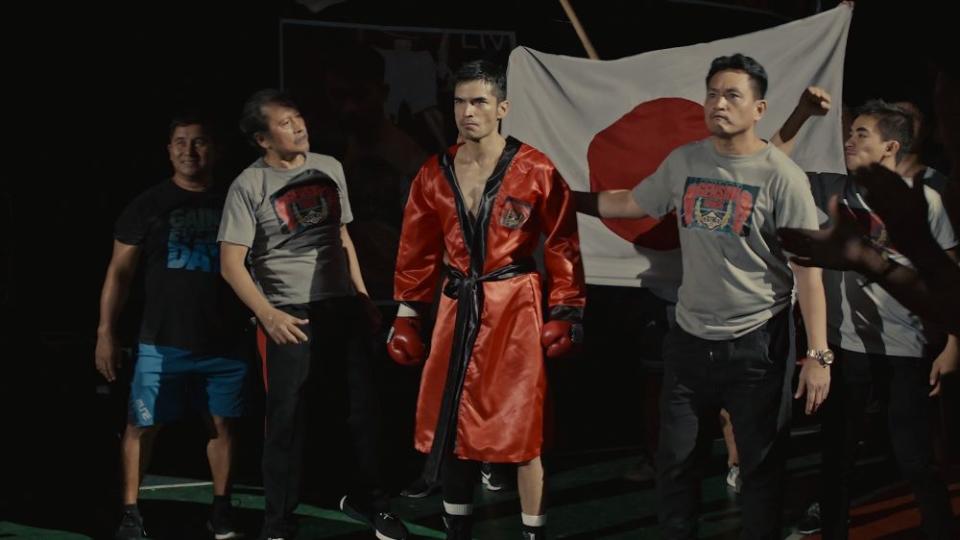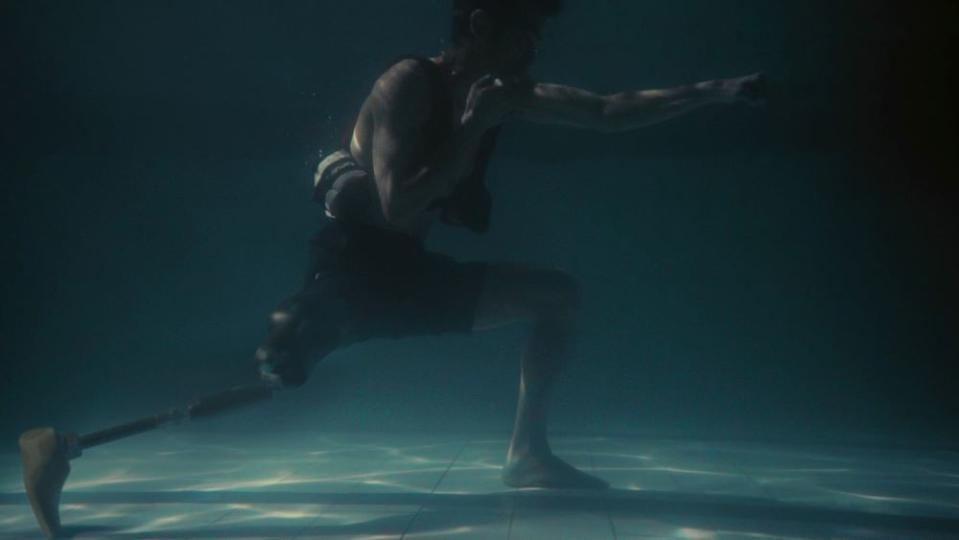‘Gensan Punch’ Star Shogen on his Journey From Okinawa and the Changing Possibilities in Japanese Film

Okinawa-born actor Shogen used to be told that he didn’t look Japanese enough for the Japanese film industry. Now he is not only one of the most in-demand rising stars, he is also the instigator, co-producer and star of triumph over-adversity movie “Gensan Punch” which has just premiered at the Busan and Tokyo film festivals and has been picked up for HBO.
Directed by Brillante Mendoza (“Kinatay,” “Alpha: The Right to Kill”) the fact-based tale sees Tsuchiyama Naozumi, a Okinawan man with a prosthetic leg, relocate to The Philippines to become a professional boxer, after being repeatedly blocked in his home country.
More from Variety
'Vera Dreams of the Sea' Wins Tokyo Film Festival Grand Prix
Tokyo Festival Is More Diverse and Collaborative, Says Ichiyama Shozo
Shogen’s recent work has taken him all over Asia, giving him credits on Eric Khoo’s “Ramen Shop,” the “Death Note” TV series and Chinese blockbuster “Detective Chinatown 3.”
Training for the film landed Shogen in the Gensan Quarter gyms of General Santos City used by Philippines boxing superstar and presidential candidate Manny Pacquiao.
In your own words describe the role. How much of it is real?
“My character is a Japanese boxer with a prosthetic leg who defied the odds to become a professional. He was denied to become a professional boxer in Japan and instead went to The Philippines. This is his journey about overcoming steep odds. We’re not calling it an adaptation. But it is inspired by his real life story.”
How much did you have to research as preparation?
“I’m the one who started this project. I met Tsuchiyama ten years ago. I was so inspired by his story that thought I it was worth retelling. I talked about this with Japanese producer Yamashita Takahiro and then, because I’m a Brillante Mendoza fan, asked to be introduced through Eric Khoo, who is a mutual friend. Eric suggested I come to Busan three years ago and get connected there.
“Shortly after, Brillante [Mendoza] came to the Tokyo International Film Festival, as head of the jury. We kept pitching him little-by-little there and on a trip to The Philippines. Brillante was busy and also unsure, as he had never made a film brought to him from the outside. But we eventually got through by passion.”
Why were you so determined to work with Brillante Mendoza?

HBO Asia
“I’d previously watched ‘Ma Rosa’ and ‘Kinatay’ and his other films. Eric [Khoo] and Taka [Yamashita] wanted something documentary style and thought Brillante was right. We didn’t want to make a ‘Rocky’-kind of film.
“Tsuchiyama became a champion, but it is not really a success story. More about overcoming challenges. This is a beautiful story, but it is not like he becomes world champion.”
What did you learn from Brillante Mendoza?
“First of all, he never shows a script to the actors. All he wants is realism and spontaneity. For you to inhabit the role.
“Before the film, we talked about my character for a long time. He’d bring me over to The Philippines to talk about the character. I’d stay in General Santos as time for training, to spend with boxers and immerse myself in the environment.”
What was the hardest part? Getting fit? Acting around a CGI prosthetic leg?

HBO Asia
“There were many challenges. The four fight scenes scared me. They were not choreographed, just improvised sparring. We never knew what was going to happen in the ring. All my opponents were professional boxers and when they get excited you never know what is going to happen. Brillante said don’t knock each other out, just hit each other.
“Maybe it is not as beautiful as a choreographed fight film. But it was real. And it hurt. I got bruises all over my face. I spent a year and a half with the boxers. They said that they too are afraid before the bouts.
“The shouts and applause of the audience encouraged me. And I felt blessed and overwhelmed. That’s when I realized why boxers get in the ring.”
Your career has seen you do dozens of movies. And in many different places across Asia. Is there a reason?
“One of the reasons I got inspired by the boxer was because when I started acting I was told by Japanese producers that I’m not Japanese enough. My look is not typically Japanese. This is because I’m from Okinawa and (an ethnic) minority in Japan. I was shocked.
“It had been my childhood dream to become an actor. And like the boxer from Okinawa, he had been denied too. That’s why I decided not to stay in one place, to leave the country and challenge myself outside of Japan, including studying in New York.”
Do you feel there is a younger generation of actors in Japan who are more international than their elders?
“For my generation it is not common to go abroad and work. Watanabe Ken and (Hiroyuki) Sanada-san are frontier actors for us. Now things are opening up.
“When I was in the Busan film festival, I met with filmmakers who told me that Japan is like the Galapagos and conservative. Internationalization is beginning to happen now.”
What are you working on these days?
“I’ve been preparing for a film with Gordon Maeda [son of Sonny Chiba and brother of another atypical Japanese rising star Mackenyu] about the war in Okinawa. I’ve been researching by watching a lot of documentaries. It is hard to face the truth about what happened the wartime.
“And, from February I have a big project with Japan-based Indian director, Anshul Chauhan. His last film “Kontora” won the Grand Prix at the Tallinn Black Nights festival in 2019. This will be only his third film, but already he is being offered really big-budget movies. This one is an independent film. A really good story, an untitled court room drama.”
Best of Variety
Sign up for Variety’s Newsletter. For the latest news, follow us on Facebook, Twitter, and Instagram.

 Yahoo Sport
Yahoo Sport 






































